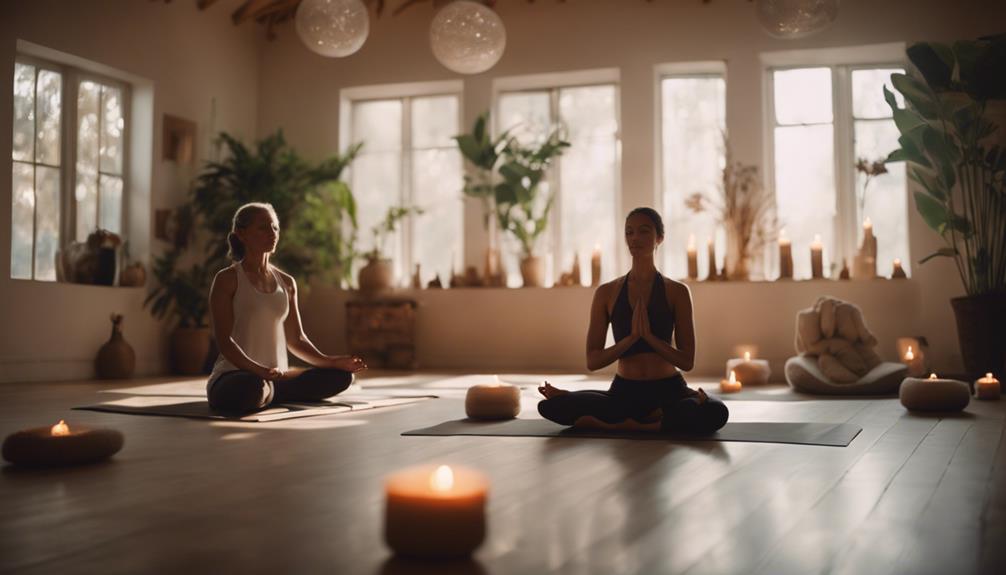Why Yoga Is Good For You

Yoga has been practiced for thousands of years, and its popularity continues to grow in the modern world. Many people turn to yoga not just as a form of exercise, but as a holistic approach to well-being. In this blog post, we will explore the reasons why yoga is good for you, covering its numerous physical, mental, and emotional benefits. Let’s dive into the transformative power of yoga and discover how it can enhance your life.
The Physical Benefits of Yoga
One of the most evident reasons why yoga is good for you is its significant physical benefits. Engaging in regular yoga practice can lead to improved flexibility, strength, and balance. Many yoga poses (asanas) stretch and strengthen various muscle groups, helping to prevent injuries and improve overall physical performance. Additionally, yoga promotes better posture, which can alleviate chronic pain associated with conditions like back or neck discomfort. Studies have shown that individuals who practice yoga regularly report increased mobility and a greater range of motion, making it an excellent addition to any fitness routine.
Yoga as a Stress Reliever
In today’s fast-paced world, stress has become a common concern for many people. This is where yoga shines as a powerful stress-relief tool. The practice of yoga encourages mindfulness and relaxation through controlled breathing techniques (pranayama) and meditation. These practices help activate the body’s relaxation response, reducing levels of cortisol, the stress hormone. Research indicates that regular yoga practice can lead to lower anxiety and improved mood, making it a natural remedy for those struggling with stress and tension. Embracing yoga can create a sense of calm and peace, allowing individuals to better manage their daily challenges.
Enhancing Mental Clarity and Focus
Another compelling reason why yoga is good for you is its positive impact on mental clarity and focus. The meditative aspects of yoga encourage individuals to concentrate on their breath and movements, fostering a deeper connection between the mind and body. This mindfulness practice helps to clear mental clutter, leading to improved cognitive function and better decision-making. Many practitioners report enhanced creativity and productivity after engaging in yoga, making it an effective tool for students, professionals, and anyone seeking to boost their mental capabilities. By incorporating yoga into your routine, you can sharpen your focus and cultivate a more productive mindset.
Related Posts:
Promoting Emotional Well-Being
Yoga is not just beneficial for physical and mental health; it also plays a vital role in emotional well-being. The combination of physical movement, breath awareness, and mindfulness creates a profound sense of self-awareness and emotional balance. Many individuals find that yoga helps them process their emotions, leading to reduced feelings of depression and anxiety. The supportive community often found in yoga classes can also foster social connections, combating feelings of isolation. Furthermore, the practice encourages self-acceptance and self-love, allowing individuals to cultivate a more positive relationship with themselves.
Improving Sleep Quality
Sleep is essential for overall health, yet many people struggle with insomnia or poor sleep quality. This is another area where yoga can be incredibly beneficial. Engaging in gentle yoga practices, particularly restorative or yin yoga, can help prepare the body and mind for restful sleep. The relaxation techniques learned through yoga can reduce tension and promote a sense of calm, making it easier to fall and stay asleep. Research shows that individuals who practice yoga regularly report better sleep quality and reduced insomnia symptoms. By incorporating yoga into your evening routine, you can set the stage for a more restorative night’s sleep.
Yoga for Enhanced Breathing and Lung Capacity
Breath is at the core of yoga practice, making it a powerful tool for improving respiratory health. The breathing techniques taught in yoga help increase lung capacity and promote efficient oxygen exchange in the body. This can be particularly beneficial for individuals with respiratory conditions such as asthma or chronic obstructive pulmonary disease (COPD). Additionally, learning to control your breath can lead to greater relaxation and decreased anxiety. As you practice yoga, you’ll develop a deeper awareness of your breath, ultimately enhancing your overall well-being and vitality.
Building Community and Connection
One of the often-overlooked benefits of yoga is the sense of community it fosters. Many people find a welcoming and supportive environment in yoga studios, where they can connect with like-minded individuals. This sense of belonging can be incredibly uplifting and can contribute to improved mental health. Participating in group classes can lead to friendships and social interactions that enhance overall happiness and well-being. Whether you practice yoga alone or in a group, the shared experience of movement and mindfulness creates a unique bond among practitioners, promoting a sense of connection and support.
Conclusion: Embrace the Power of Yoga
In conclusion, the reasons why yoga is good for you are vast and varied. From physical benefits like improved flexibility and strength to mental advantages such as enhanced focus and emotional well-being, yoga offers a holistic approach to health. By incorporating yoga into your daily routine, you can experience profound transformations in your body, mind, and spirit. Whether you are a beginner or an experienced practitioner, the practice of yoga can be tailored to meet your unique needs and goals. So, roll out your mat, take a deep breath, and embrace the incredible benefits of yoga for a healthier, happier you.
By understanding the many facets of yoga, you can fully appreciate its impact on your life and health. Start today, and discover how this ancient practice can bring joy, peace, and balance into your everyday existence.How To Sanitize A Yoga MatHow Often Yoga For Flexibility